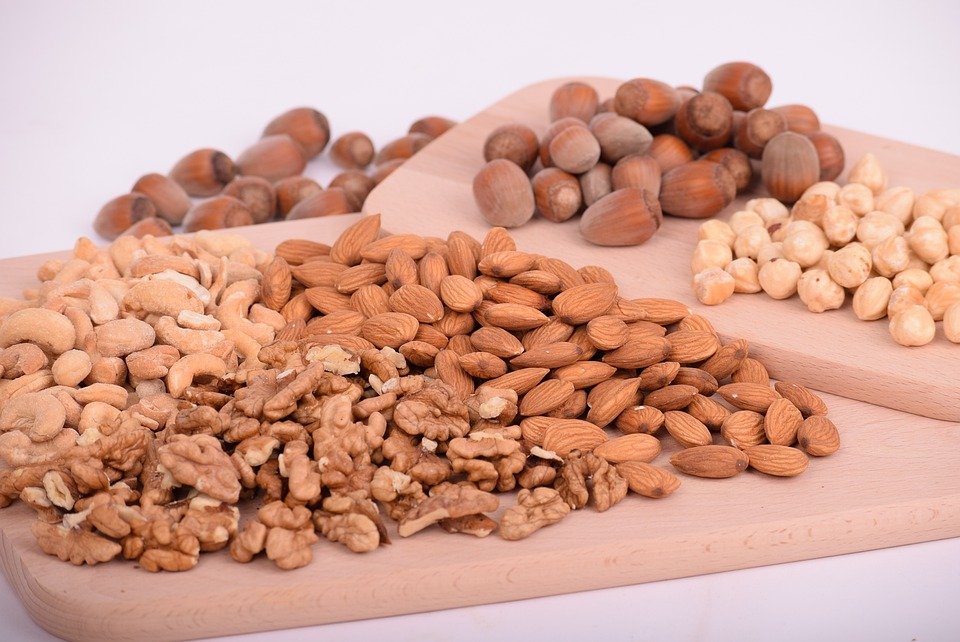Lose Weight Eating Plan
Lose Weight Eating Plan: Transform Your Lifestyle for a Healthier You
Introduction:
In today’s fast-paced world, where convenience often takes precedence over health, it is no surprise that many individuals struggle with weight management. Losing weight can be a challenging journey, but with the right eating plan and mindset, it is attainable for anyone. In this article, we will delve into the intricacies of a lose weight eating plan, exploring effective strategies, healthy food choices, portion control, exercise, and the importance of mindset. By incorporating these elements into your lifestyle, you can pave the way for a healthier and more fulfilling life.
1. The Power of a Lose Weight Eating Plan:
Understanding the Basics
Embarking on a weight loss journey requires a well-rounded approach that encompasses both nutrition and exercise. However, it is essential to understand that a lose weight eating plan is not about deprivation or extreme measures. Instead, it is about making sustainable choices that nourish your body while promoting weight loss. By focusing on whole, nutrient-dense foods and creating a calorie deficit, you can achieve your weight loss goals.
Choosing Nutrient-Dense Foods
The foundation of any successful lose weight eating plan lies in the selection of nutrient-dense foods. These are foods that are rich in essential vitamins, minerals, and other beneficial compounds, while also being relatively low in calories. Incorporating a variety of fruits, vegetables, lean proteins, whole grains, and healthy fats into your diet will provide you with the necessary nutrients for optimal health and weight loss.
2. Portion Control: The Key to Success:
Understanding Portion Sizes
One of the most crucial aspects of a lose weight eating plan is mastering portion control. Portion sizes in today’s society have become distorted, often leading to overconsumption and weight gain. By learning to recognize appropriate portion sizes and practicing mindful eating, you can regain control over your food intake and promote weight loss.
Tips for Practicing Portion Control
To implement portion control effectively, consider using smaller plates and bowls to create the illusion of a fuller plate. Additionally, listen to your body’s hunger and fullness signals, eating slowly and savoring each bite. It can also be helpful to pre-portion snacks and meals, allowing you to have better control over your calorie intake.
3. Exercise: Complementing Your Eating Plan:
Importance of Physical Activity
While a lose weight eating plan primarily focuses on nutrition, incorporating regular physical activity is crucial for overall health and weight loss. Exercise not only helps burn calories but also boosts metabolism, improves cardiovascular health, and enhances mood and well-being. By finding activities you enjoy and making them a part of your routine, you can support your weight loss journey and maintain a healthy lifestyle.
Finding the Right Exercise Routine
When selecting an exercise routine, consider activities that align with your interests and abilities. Whether it be brisk walking, cycling, swimming, or joining a fitness class, finding something you enjoy will increase your chances of sticking with it long-term. Aim for at least 150 minutes of moderate-intensity aerobic exercise per week, along with strength training exercises at least twice a week.
4. Maintaining a Positive Mindset:
The Role of Mindset in Weight Loss
While nutrition and exercise are vital components of a lose weight eating plan, mindset plays an equally crucial role. Cultivating a positive and resilient mindset can help you overcome challenges, stay motivated, and persevere through setbacks. It is essential to approach your weight loss journey with self-compassion, practicing self-care and celebrating your achievements along the way.
Strategies for a Positive Mindset
To foster a positive mindset, surround yourself with a supportive network of friends and family who uplift and encourage you. Set realistic goals and focus on progress rather than perfection. Incorporate stress management techniques such as meditation or journaling to help combat emotional eating and maintain a balanced approach to weight loss.
5. Sustaining Long-Term Success:
Maintaining Your Progress
Once you have achieved your weight loss goals, it is crucial to transition into a maintenance phase to sustain your progress long-term. This involves continuing to make healthy food choices, practicing portion control, and maintaining a regular exercise routine. Remember that weight loss is not a one-time event but rather an ongoing journey of self-care and wellness.
Seeking Professional Guidance
If you find yourself struggling to develop a sustainable lose weight eating plan or facing obstacles along the way, consider seeking professional guidance. Registered dietitians or certified nutritionists can provide personalized advice and support, tailoring a plan to your specific needs and preferences. They can also assist in addressing any underlying medical conditions that may affect your weight loss efforts.
Conclusion:
Embarking on a lose weight eating plan is a transformative journey that requires dedication, perseverance, and a commitment to self-improvement. By understanding the basics, practicing portion control, incorporating exercise, maintaining a positive mindset, and seeking professional guidance when needed, you can achieve sustainable weight loss and embark on a path towards a healthier, happier life. Remember, this journey is unique to you, and with the right mindset and support, you can overcome any hurdles and emerge victorious in your pursuit of a healthier you.
Commonly Asked Questions About Lose Weight Eating Plan
1. What is a lose weight eating plan?
A lose weight eating plan is a structured approach to your diet that aims to help you achieve weight loss goals by consuming a certain number of calories and selecting foods that are nutrient-dense and support a healthy metabolism.
– A lose weight eating plan focuses on calorie control and nutrient-dense foods.
– It helps you create a calorie deficit to promote weight loss.
– It encourages the consumption of whole, unprocessed foods for optimal health benefits.
2. How does a lose weight eating plan work?
A lose weight eating plan works by creating a calorie deficit, which means you consume fewer calories than your body needs to maintain its current weight. This deficit forces your body to tap into its stored fat for energy, resulting in weight loss.
– It creates a calorie deficit by reducing your overall calorie intake.
– It promotes portion control to manage calorie consumption.
– It encourages regular physical activity to enhance calorie expenditure.
3. What are the benefits of following a lose weight eating plan?
Following a lose weight eating plan offers numerous benefits beyond just weight loss. Some of the key benefits include:
– Improved overall health and well-being.
– Increased energy levels and stamina.
– Reduced risk of chronic diseases such as heart disease and diabetes.
4. What foods should I include in a lose weight eating plan?
When creating a lose weight eating plan, it’s important to include a variety of nutrient-dense foods that support weight loss and overall health. Some examples of foods to include are:
– Lean proteins such as chicken, fish, tofu, and legumes.
– Whole grains like quinoa, brown rice, and whole wheat bread.
– Plenty of fruits and vegetables for essential vitamins, minerals, and fiber.
5. Can I still enjoy my favorite foods while following a lose weight eating plan?
Yes, you can still enjoy your favorite foods while following a lose weight eating plan, but moderation is key. It’s important to practice portion control and incorporate your favorite foods into your overall calorie intake.
– Practice portion control to manage calorie consumption.
– Incorporate your favorite foods into your overall calorie intake.
– Focus on balance and moderation to maintain a sustainable eating plan.
1. All calories are created equal
One common misconception about a lose weight eating plan is that all calories are created equal. While it is true that weight loss ultimately comes down to consuming fewer calories than you burn, the quality of those calories can greatly impact your overall health and weight loss progress. For example, consuming 500 calories from a nutrient-dense meal that includes lean protein, whole grains, and fruits and vegetables will provide you with more sustained energy and better overall nutrition compared to consuming 500 calories from processed foods high in sugar and unhealthy fats. Therefore, it is important to focus on the quality of the calories you consume rather than solely the quantity.
2. Skipping meals leads to weight loss
Another misconception is that skipping meals, particularly breakfast, can aid in weight loss. However, research has shown that regularly skipping meals, especially breakfast, can actually lead to weight gain rather than weight loss. When you skip a meal, your body may go into starvation mode, slowing down your metabolism and potentially causing you to overeat later in the day. Additionally, skipping meals can make it more challenging to meet your nutritional needs, which can negatively impact your overall health. Instead of skipping meals, it is better to focus on eating balanced meals throughout the day to support your weight loss goals.
3. Low-fat or fat-free foods are always better for weight loss
Many people assume that opting for low-fat or fat-free foods is the key to successful weight loss. While reducing overall fat intake can be beneficial for weight management, not all low-fat or fat-free foods are created equal. Often, these products may compensate for the reduced fat content by adding extra sugar or other additives to enhance flavor. These added sugars can contribute to weight gain and other health issues when consumed in excess. Additionally, fat plays a crucial role in satiety and can help you feel full and satisfied after a meal. Therefore, it is essential to focus on consuming healthy fats in moderation, such as those found in avocados, nuts, and olive oil, rather than solely relying on low-fat or fat-free options.
4. Cutting out entire food groups is necessary for weight loss
Some individuals believe that cutting out entire food groups, such as carbohydrates or fats, is necessary for successful weight loss. However, eliminating entire food groups from your diet can lead to nutrient deficiencies and imbalances, which can negatively impact your overall health. Carbohydrates, for example, provide essential energy for your body and brain. Instead of completely eliminating food groups, it is important to focus on consuming a balanced diet that includes a variety of foods from all food groups in appropriate portion sizes. This approach ensures that you receive all the necessary nutrients while still supporting your weight loss goals.
5. Weight loss supplements are a quick fix
Many people are tempted to try weight loss supplements or pills as a quick fix for their weight loss goals. However, most weight loss supplements on the market are not regulated by the Food and Drug Administration (FDA) and may not have sufficient scientific evidence to support their claims. While some supplements may have temporary effects on appetite or metabolism, they are not a sustainable or healthy approach to weight loss. It is important to focus on long-term lifestyle changes that include a balanced diet and regular physical activity for sustainable weight loss. Consulting with a healthcare professional or registered dietitian can provide you with personalized advice and guidance on safe and effective weight loss strategies.
Lose Weight Eating Plan
#Lose #Weight #Eating #Plan


